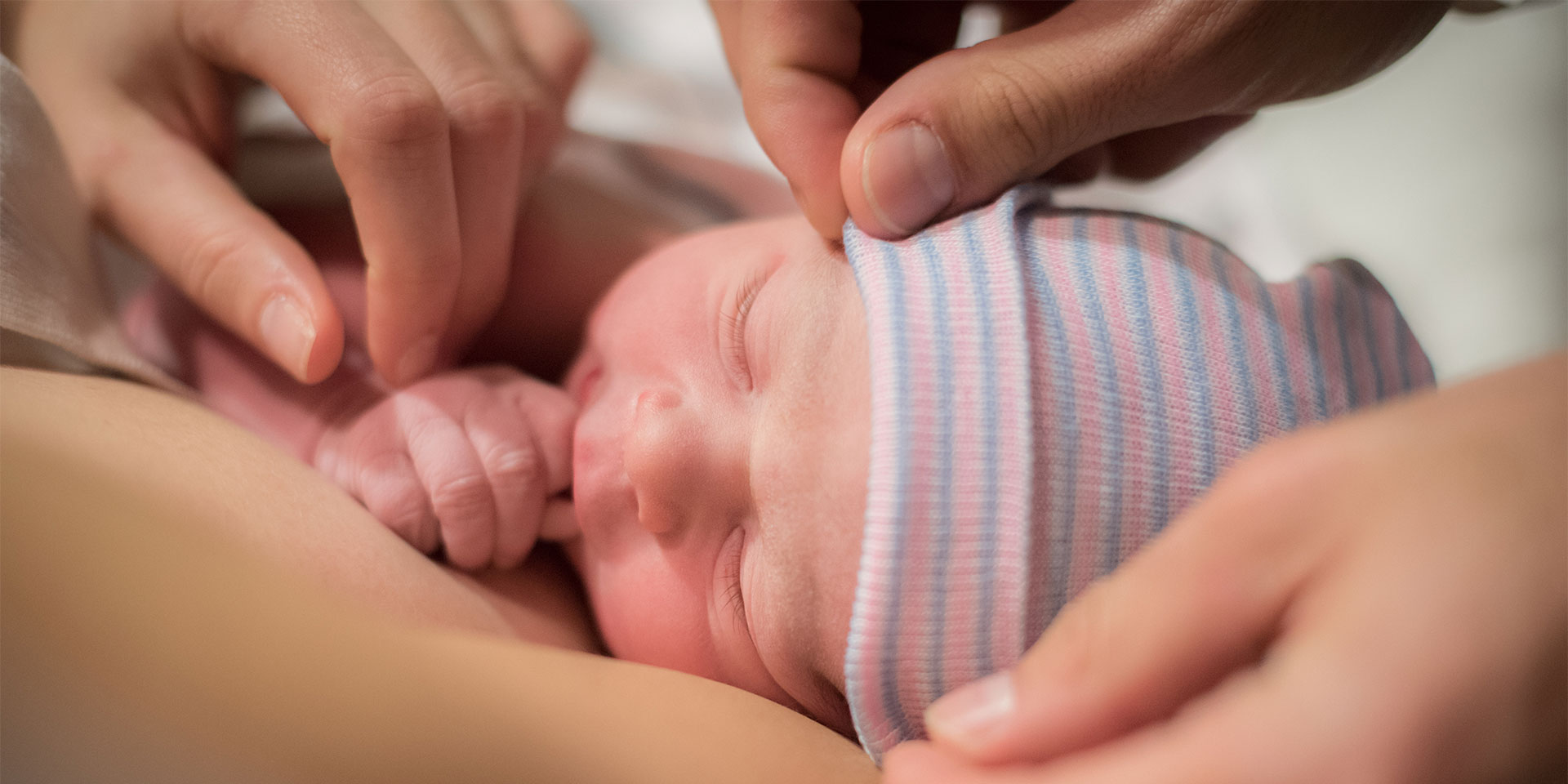Describing the breakup of her marriage after the birth of her children, journalist Nora Ephron writes that a child is a grenade for the couple’s relationship. After the explosion, when the dust settles, “your marriage is different from what it was. Not better, necessarily; not worse, necessarily; but different.”[1]
Even if they do not describe the change brought by the arrival of children in the same dramatic way, specialists talk about the decline of the marital relationship in most couples and about the need to carefully manage the relationship at this stage of life.
“Everything changes”—these are the words most often used by parents to describe the experience they go through with the birth of their first child. Childless couples may miss the whole meaning of this overused statement, but parents know that it expresses, although briefly, a reality that no words can faithfully render. Artist Sarah Walker compares the experience of becoming a mother to discovering the existence of “a strange new room in the house where you already live.”
Neurological and hormonal changes before and after childbirth
Even before giving birth, the expectant mother goes through a series of emotional changes that mirror the processes taking place at the neurological level.
Pregnancy changes the structure of brain regions involved in understanding the thoughts and feelings of others, according to a study published in Nature Neuroscience. The changes persist for at least two years after the birth of the child, but there is a lack of research to show whether they extend beyond this period. According to the authors of the study, mothers who underwent more pronounced changes in the structure and size of the brain also recorded higher degrees of attachment to their children.
By scanning the women’s brains before and after the birth of their first child, researchers noted a loss of grey matter in several cortical regions. The explanation for these changes is still unclear. According to neurologist Paul Thompson, there are three possible explanations, the most intuitive of which is that this change will later generate negative effects. It could also be a “neutral” effect of the stress-food-lack-of-sleep triad, specific to the pregnancy period. A third possibility relates to brain plasticity, implicitly to its preparation to become more efficient in tasks and the skills related to motherhood.
Tests carried out before and after birth showed that there was no loss of memory, not even short-term, and no decline in verbal skills, Professor Rebecca Saxe says.
Even if the biological changes fathers go through are not as obvious as in the case of mothers, the transition to parenthood comes with hormonal and brain changes in men as well, says anthropologist Anna Machin, listing several studies that provide evidence in this sense.
Anthropologist Lee Gettler is the coordinator of a pioneering five-year study of 624 childless Filipino men between the ages of 21 and 26. Gettler observed that although all subjects experienced a natural age-related decline in testosterone levels, for men who became fathers during this time period the decline was more pronounced (by an average of 34%) than in men who did not have children, whether married or not.
There is a directly proportional relationship between the dramatic reduction in testosterone levels and men’s involvement in the care of newborns and domestic tasks, the researcher says.
Fathers who are close to their children also experience other hormonal effects—the increase in prolactin levels, which is associated with a reduction in libido, but also in the level of vasopressin, a hormone related to the creation of stable relationships.
Fathers’ brains seem to also undergo changes that favour the development of skills necessary for parenthood. A 2014 study found changes in brain structure similar to those experienced by mothers. Cortical regions related to attachment, empathy, caregiving, and the ability to respond to the baby’s needs had more grey and white matter when the baby was 12-16 weeks old than in the first 2-4 weeks of the child’s life.
The birth of a child brings changes in the vision of life and values of the new parents, but also in their relationships with the people closest to them, including the marital relationship.
Does the marital relationship deteriorate after the birth of children?
Most studies come to the conclusion that the emergence of a child alters the couple’s relationship or at least accelerates its weakening.
Thus, researchers talk about the deterioration of the couple’s relationship immediately after the birth of the child and about the persistence of these dysfunctions during the following years, about the existence of a critical interval in the first year and a half after the birth of the child, about a more ineffective management of conflicts, or about a higher level of depression than in the case of childless adults.
A study conducted over a period of eight years on 218 couples showed that marital satisfaction decreased in 90% of couples with the birth of the first child. Childless couples also report a decrease in relationship satisfaction, says Professor Scott Stanley, noting, however, that the birth of a child accelerates this process. However, the study showed that, in the equation of this decline, other variables also intervene, which are related to the specifics of the couple relationship or the parental marital model to which the young parents were exposed.
Thus, researchers say that the decline of the relationship was more pronounced in couples who lived together before marriage than in partners who lived separately. Likewise, couples whose parents were divorced or in a highly conflictual relationship were more affected by the changes that occurred with the birth of their own children.
On the other hand, studies show that a high degree of satisfaction in the relationship before the birth of the child still sees an accelerated decrease with the emergence of children.
Commenting on the results of the study that revealed the higher level of depression of parents, Professor Robin Simon points out that the data obtained do not suggest the unpleasantness of playing the parental role but the lack of support in raising children and, in general, the high emotional cost of parenthood—even in the empty nest stage the parent has more worries than the childless adult because concern for the children’s well-being never goes away.
Do children really kill a good marriage? This is the question asked by psychologist Shauna Springer in an article that examines the complexities of marriage, but also the interaction between married life and parenthood. Few researchers would deny the impact of a child on marital satisfaction, says Springer, noting, however, that this decline may be temporary and, in any case, is also influenced by other factors as well. This is the conclusion also reached by Philip and Carolyn Cowan, renowned researchers in this field, who claim that “the seeds of new parents’ individual and marital problems are sown long before their first baby arrives.”
Tips for the challenging transition to parenthood
The arrival of such a vulnerable being as the newborn, who demands care and attention 24 hours a day, inevitably absorbs the parents’ energy, changing the usual level of stress. What is interesting is that there are parents who say that the expansion of the family has increased the degree of satisfaction and brought positive notes to their relationship. About 7% of mothers and a double percentage of fathers report an increase in satisfaction immediately after the birth of their children, says psychologist Theresa DiDonato, quoting data provided by a study from two decades ago.
Other research shows that relationship satisfaction remains at the same levels or increases after the birth of children in approximately 30% or even 50% of couples as the parents adapt to the new role.
Based on recent revisions of a study on adjusting to the role of parent, DiDonato makes a list of suggestions that can make the transition to this role smoother and less damaging to the couple’s relationship.
Building a secure attachment style towards the partner acts as a protective factor for the relationship. On the other hand, adults with an anxious attachment style feel more strongly the decrease in the quality of the relationship, especially in the case of an unsupportive partner.
If there were to be a golden time to develop and strengthen a marriage it would be the time before children appear. The arrival of children “sets off seismic changes in a marriage,”[2] and, although happy couples also experience significant decreases in marital satisfaction, their relationship is more able to cope with new challenges.
Managing mental health during pregnancy is very important for the quality of the couple’s relationship during the child’s first years of life.
“Take the image of the ideal parent and throw it in the garbage.” This is the advice that sociologist Leah Ruppanner offers especially to mothers, because the expectations favoured by our culture regarding the “good” parent put pressure on parents that also affects the relationship of the couple.
Extending the feeling of “togetherness” to the child is a vital element in maintaining closeness between spouses, says researcher John Gottman, explaining the transformations a mother undergoes and how the father can keep up with them.
Motherhood changes women in a deep and irreversible way. It gives life another meaning and makes mothers gravitate around their children with an unconditional love, capable of the greatest sacrifices. These are too far-reaching transformations not to alienate the partner, if one focuses on the feeling of “we-ness” that now includes the child and the other still longs for the “old us.”[3]
The only solution is for the husband to enter this whirlwind of change together with his life partner, and Gottman offers some tips for the success of this leap into the unknown.
Focusing on marital friendship and treating the marriage as a priority (even if, for a time, it takes second place) will protect the relationship from wear and tear or breakdown, Gottman says.
It is also very important not to exclude the father from the care of the child. Although she may admit that both parents must be involved in the upbringing of the child, the mother often tends to criticise, to take on all the tasks related to care, and to play the role of supervisor and mediator of the father-child relationship.
Frequently, the parent who becomes the primary caregiver for the children exhausts their resources, while the other parent becomes jealous, feeling excluded from this special bond. The accumulation of these frustrations can tear a relationship apart, says social worker Lisa Schuman.
Encouraging the father to be the child’s caregiver and playmate from when they are very young has an important role not only in building the father-child relationship but also in preventing cracks in the marriage. It allows the mother to take a break in which she can resume connections with the outside world and helps partners become allies in this overwhelming process of caring for the new family member.
Equitable division of tasks represents a more important strategy to maintain harmony in the couple than we imagine. A survey by the Pew Research Center shows that the equitable distribution of household chores is the third ingredient of a happy relationship—after fidelity and a satisfying sexual relationship, but before other elements such as adequate income, sharing religious beliefs, common tastes and interests, or similar political choices.
Couples have a higher risk of divorce in the first seven years of marriage than in the years following, and John Gottman believes that the roughness that spouses encounter in their transition to parenthood makes marriage so vulnerable to this group.
Precisely because these years are fragile, we should nurture the relationship with the same care with which we take care of the needs of a baby, says therapist Zach Brittle, emphasising that the only way for a couple to maintain intimacy with its multiple facets (emotional, conversational, spiritual, and physical) is to embrace change.
In fact, this is the only way to give not only strong roots, but also wings to children—these “hearts that will go forever walking around outside your body.”
Carmen Lăiu is an editor of Signs of the Times Romania and ST Network.




















